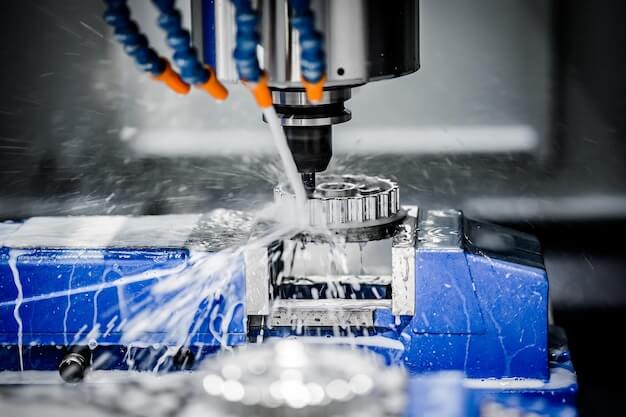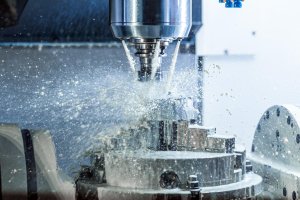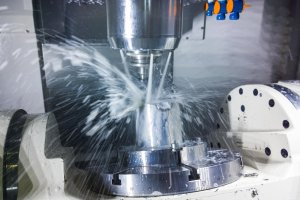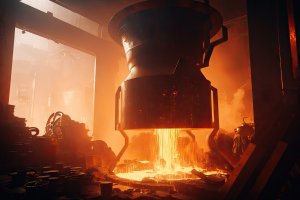CNC Machining and Tool Steel Grades D2 and A2
In the realm of manufacturing and fabrication, Computer Numerical Control (CNC) machining is a highly prevalent method. CNC allows for precision shaping and forming of materials, typically metal, through pre-programed processes executed by machines. Crucial to successful CNC work is the choice of tool steel used within these machines. D2 and A2 are common grades of tool steels that exhibit different characteristics making them suited to specific tasks in distinct ways. Specifically, D2 is a high-carbon, air-hardened tool steel that offers excellent wear resistance properties while A2, also an air-hardened tool steel, stands out for its toughness which aids in resisting deformation under use.
- D2: High carbon, great wear resistance properties
- A2: Superior toughness and resistive against deformation
Understanding Tool Steel Grades
In the realm of CNC machining, it is crucial to understand the concept of tool steel grades. The tool steel grade refers to the type and quality level of the steel utilized in cutting tools for operations like milling, drilling, turning, etc. Each variant comes with distinct characteristics that enable it to perform optimally under certain conditions.
The selection of steel grades has significant ramifications on several aspects of manufacturing. Firstly, it impacts the performance of the cutting operation as diverse steel grades offer variating hardness, toughness, and heat resistance properties. For instance, a harder steel grade might provide better wear resistance but can be more brittle. Secondly, it influences how long the tool lasts before needing replacement or regrinding. Lastly, using the appropriate steel grade can enhance the final product’s surface finish and precision levels.
- Hardness: Higher grades are typically harder yet might be more brittle.
- Toughness: Toughness varies from one grade to another. More robust grades resist chipping and breaking, while others may have enhanced thermal stability.
- Lifespan: Depending on the application requirement, different grades exhibit divergent wearability that subsequently affects their lifespan.
- Surface finish: The chosen steel grade directly impacts the resultant product’s surface finish, reflecting its precision and quality.
In-depth Look at A2 Tool Steel Grade
Tool steels, such as A2, are a group of steels containing various carbon and alloy elements, enhancing their heat resistance and durability. A2 tool steel offers:
- Good wear resistance
- Excellent toughness
- High compressive strength
- Good dimensional stability during heat treatment
Detailed Analysis of D2 Tool Steel Grade
The D2 tool steel grade is categorized under the high-alloy type of steels, renowned for its commendable toughness and high wear resistance. It has a high carbon and chromium content which gives it an exceptional ability to maintain sharp cutting edges despite prolonged use in CNC machining processes. This property can be demonstrated through an instance where D2 grade tools were used over long production cycles; they displayed remarkably less wear compared to other grades.
- High Chromium Content: The high amount of chromium present boosts corrosion resistance, decreasing service interruptions due to rust or oxidation.
- Elevated Wear Resistance: Its robustness against wearing makes it highly suitable for complicated machining operations that demand durability.
- Improved Hardness: This quality manifests the strength and resilience of D2 tool steel, making it capable of maintaining form even under heavy-duty applications.
In conclusion, using D2 in CNC machining comes with significant benefits such as improved hardness, elevated wear resistance, and higher levels of anticorrosive properties, ensuring effective and efficient machining processes.
Comparative study: D2 vs A2
In the realm of CNC machining, selecting between D2 and A2 tool steel grades is a significant decision linked to crucial factors like durability and responsiveness to heat treatment. Both these types possess certain advantages as well as drawbacks.
D2 steel scores high on hardness and wear resistance which makes it favourable for long-run operations. It’s chromium content lends considerable corrosion resistance, but its longer heat-treatment process can limit productivity. Furthermore, though hard, it’s susceptible to becoming brittle and cracking under extreme stress or sudden temperature changes.
A2, on the other hand, retains excellent stability during heat treatment paired with good machinability. Its versatility allows wide usage across different components. However, compared to D2, A2 has lower wear resistance and may require more frequent replacement in heavy-duty applications.
- Durability: While D2 offers greater longevity due to superior wear resistance, A2 provides better toughness against chipping and breaking.
- Heat Treatment Response: Although D2 endures extended heat treatments leading to enhanced hardness, A2 showcases better dimensional stability within such conditions.
Thus, no single grade simply overrules the other; the choice largely depends upon specific job requirements and operational conditions.
The Verdict: Which is Better- D2 or A2?
After closely examining both the D2 and A2 tool steel grades in CNC machining, it becomes crucial to establish which one surpasses the other in terms of effectiveness and functionality. In recapitulating pertinent points about both grades, D2 exhibits higher wear resistance but lower toughness while A2 represents a balanced mix of good wear resistance and adequate toughness.
In comparing their application feasibility for various tasks, D2 excels primarily in cases where long-term edge retention is crucial despite its susceptibility to lateral force damages. On the contrary, A2’s strength lies in applications demanding fair utilization between edge sharpness and resilience to shock. Hence, determining the supremacy between D2 and A2 is largely contingent upon specific usage requirements rather than an absolute technical superiority of one over the other.
Related Posts
- Tool Steel Grades for CNC Machining: A Comprehensive Comparison
Introduction to Tool Steel in CNC Machining CNC (Computer Numerical Control) machining denotes a process employed in manufacturing where pre-programmed computer software manages the movement of factory machinery and tools.…
- Durable Materials for CNC Machining: Tool Steel Grades Compared
Introduction to CNC Machining and its Importance in Manufacturing CNC (Computer Numeric Control) machining, a cornerstone of modern manufacturing, plays a pivotal role due to its precision, efficiency, and versatility.…
- Leveraging the Strength of Tool Steels in CNC Machining: A2 vs. D2 Comparison
Introduction to Tool Steel and CNC Machining In the vast domain of manufacturing, tool steel is a particular subset of hard metal renowned for its resistance to abrasion, ability to…








